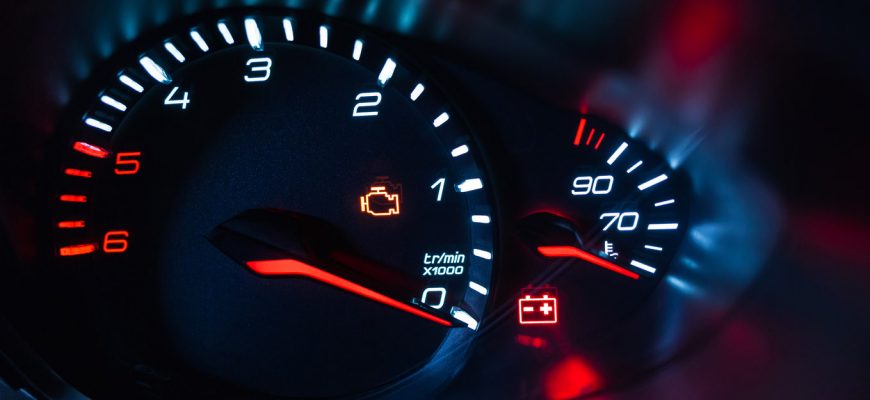Every car enthusiast knows the importance of a smooth-running engine. One of the indicators of engine health is the RPM (Revolutions Per Minute) reading on your vehicle’s dashboard. When RPM fluctuations occur‚ it can be a cause for concern. In this article‚ we will delve into the reasons behind RPM fluctuations and discuss how to address these issues effectively;
What Causes RPM Fluctuations?
RPM fluctuations can stem from various sources‚ and understanding these can help pinpoint the root of the problem. Here are some of the most common causes:
- Fuel Supply Issues: Inconsistent fuel delivery can lead to fluctuations in RPM. This could be due to a clogged fuel filter‚ failing fuel pump‚ or contaminated fuel.
- Ignition System Problems: Components such as spark plugs‚ ignition coils‚ or wiring issues can affect how the engine fires‚ causing uneven RPM.
- Vacuum Leaks: A vacuum leak can disrupt the air-fuel mixture entering the engine‚ leading to fluctuations in RPM. Common culprits include cracked hoses or leaks in the intake manifold.
- Idle Air Control Valve (IAC) Malfunction: The IAC is responsible for controlling the engine’s idle speed. If it fails‚ it can cause erratic RPM behavior.
- Transmission Problems: In automatic vehicles‚ issues with the transmission can result in unexpected RPM changes‚ particularly during gear shifts.
How to Diagnose RPM Fluctuations
Diagnosing the issue is the first step toward fixing RPM fluctuations. Here are some steps to follow:
- Check for Warning Lights: A check engine light can provide valuable information. Use an OBD-II scanner to read the codes and identify any underlying issues.
- Inspect the Fuel System: Check the fuel filter and pump for any signs of failure or blockage. Ensure the fuel injectors are functioning properly.
- Examine the Ignition System: Inspect spark plugs for wear and replace any faulty ignition coils. Ensure all wiring is intact.
- Look for Vacuum Leaks: Use a smoke machine or carburetor cleaner to detect leaks around hoses and the intake manifold.
- Test the IAC: If you suspect the IAC is malfunctioning‚ clean or replace it if necessary.
Fixing RPM Fluctuations
Once you’ve identified the cause of the RPM fluctuations‚ it’s time to take action. Here are some solutions:
- Replace Clogged Fuel Filters: A simple filter replacement can resolve many fuel delivery issues.
- Repair or Replace Ignition Components: Ensure all parts of the ignition system are in good condition to achieve a stable RPM.
- Seal Vacuum Leaks: Replace cracked hoses or use sealants to fix leaks in the intake system.
- Clean or Replace the IAC: Regular maintenance can help prevent IAC issues‚ but if it’s failing‚ replacement is the best option.
- Consult a Mechanic: If the problem persists‚ it’s wise to consult a professional mechanic for a thorough diagnosis.
RPM fluctuations can be unsettling and may indicate deeper issues with your vehicle. By understanding the causes and taking appropriate steps to diagnose and fix these fluctuations‚ you can ensure your car runs smoothly and efficiently. Regular maintenance and prompt attention to any problems will keep your engine healthy and extend its lifespan.
Remember‚ a well-maintained vehicle not only performs better but also enhances your driving experience. Stay vigilant and keep your RPMs steady!










Fantastic insights into RPM behavior! I’ll definitely be checking my vehicle more closely after reading this. Thanks for sharing!
Great breakdown of the causes behind RPM fluctuations! The tips on how to diagnose the issues were particularly helpful. Highly recommend!
Excellent article! It’s clear and concise, making complex topics easy to understand. Perfect for both beginners and seasoned enthusiasts!
I had no idea that fuel supply issues could cause RPM fluctuations. This article really opened my eyes to the potential problems with my car.
This article is incredibly informative! I learned so much about RPM fluctuations and how to diagnose them. Thank you!
This was an eye-opener for me. I never thought about how many factors could affect RPM fluctuations. Very well written!
I appreciate the detailed explanations in this article. It’s a must-read for any car enthusiast wanting to keep their engine running smoothly.
The section on diagnosing RPM issues was especially useful. I feel more confident tackling these problems now. Great job!